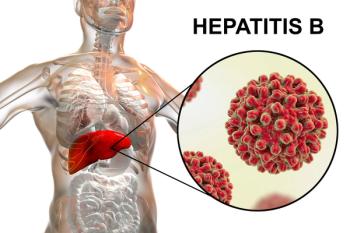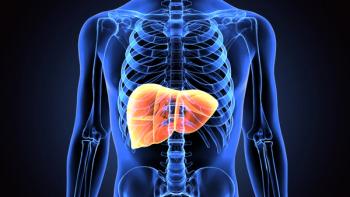
Robotic Surgery for HCC is Safe and Effective, Study Finds
A retrospective study published in JAMA Surgery shows that robotic liver resection for hepatocellular carcinoma is associated with shorter hospital stays and fewer admissions to the intensive care unit than open surgery, despite longer operating time and greater blood loss.
The use of robots to perform cancer surgery continues to grow. Robots are regularly used by urology, cardiothoracic, gastrointestinal, neurological, and otolaryngologic surgeons for cancer cases.
Some surgeons believe that the robotic surgery has a great deal of advantages when it comes surgery to treat hepatocellular carcinoma, the main type of liver cancer, including more precision and gentler manipulation of the liver. But there are questions about whether the outcomes are the better, the same or worse.
Fabrizio Di Benedetto and a team of researchers from the
The robotic surgeries were performed at one of four hospitals: University of Modena and Reggio Emilia, University Hospital Zurich in Switzerland, New York-Presbyterian/Columbia University Irving Medical Center in New York and Weill Cornell Medical College, which is also in New York). The robotic surgeries were done with da Vinci systems. The control group surgeries were performed at the Istituto Nazionale Tumori, which is Italy’s version of the National Cancer Institute.
The investigation found that robotic surgery patients had a significantly longer operative time (295 minutes versus 200 minutes) and a greater amount of perioperative blood loss. But the patients in the robotic surgery group also had shorter hospital stays than the open surgery patients (a median of four days versus 10) and fewer admissions to the intensive care unit (6.6% vs. 21%). The comparison also showed that the open surgery patients were more likely to have severe complications and post-surgery liver failure
The 90-day overall rate of survival was about the same, as was the incidence of death related to tumor recurrence.
Di Benedetto and his colleagues said cost and cost-effectiveness comparison were impossible because of the differing reimbursement systems among the hospitals. But, they argued, intuitively a median difference of six days in the hospital would represent a major savings.
Robotic surgery “provides increased surgical dexterity and enhanced suturing ability, thanks to a magnified, three-dimensional view of the operative field, hand tremor filtration and articulating instruments with seven-degrees of freedom,” according to Di Benedetto and his colleagues. “Furthermore, this approach significantly reduces surgeons’ fatigue, improving performance for operations.”
Di Benedetto adds that robotic surgery also supports upgrades in technology of specific surgical tools that can help surgeons face challenging situations and improve their skills with intraoperative ultrasound, near-infrared fluorescence with indocyanine green, CT and MR images integrated into the robotic console.
So why isn’t robotic surgery used more often in liver cancer surgery? The major drawback, writes Di Benedetto, is the cost related to the need of a dedicated instrument for transection, along with additional surgeons and time for instrument replacement. There is also the issue of the learning curve of the team to dock the instruments, as well as the lack of haptic feedback. Nevertheless, the investigation concluded that robotic resections for liver cancer are feasible and safe with “adequate oncological outcomes.”
“Robotic liver resection performed in tertiary centers represents a safe treatment strategy for patients with HCC (hepatocellular carcinoma) and those with compromised liver function and is associated with the prevention of incident PHLF (posthepatectomy liver failure) and achievement of oncologic efficacy,” they concluded.
Newsletter
Get the latest industry news, event updates, and more from Managed healthcare Executive.

























